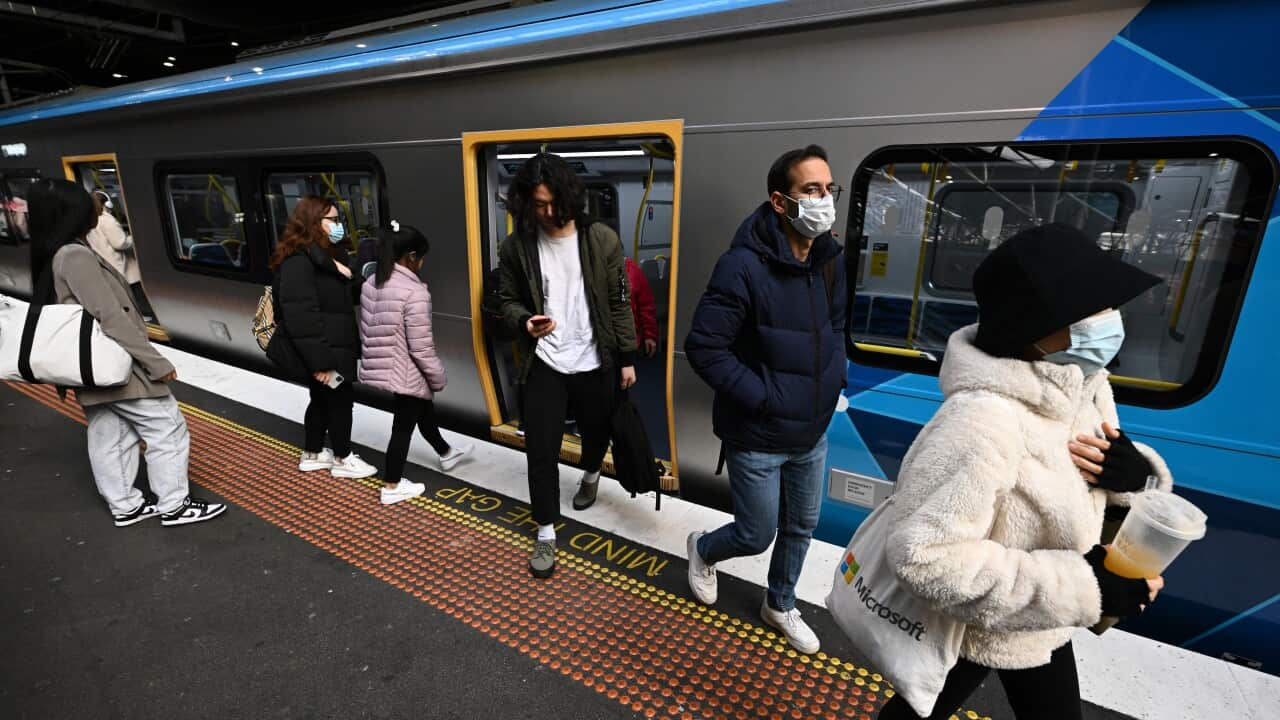People who test positive for COVID-19 will no longer have to isolate, with mandatory stay-at-home orders officially scrapped.
The changes took effect on Friday.
Pandemic leave disaster payments are also finishing up, except for workers, including casuals, who work in high-risk healthcare settings.

People who test positive for COVID-19 will no longer have to isolate, with mandatory stay-at-home orders officially scrapped. Source: AAP / Bianca De Marchi
But Burnet Institute Director Professor Brendan Crabb told SBS News he is concerned about , labelling it "illogical".
"[Compulsory isolation is] a really important part of the COVID response," Professor Crabb said.
Professor Crabb said mandatory isolation is a useful tool when cases are low to safeguard against the next wave of infections.
He said personal responsibility "pretty clearly doesn't work in public health measures."
Professor Crabb added: "It seems very unlikely that compliance will be high with isolation."
The decision to drop compulsory isolation was also "unfair" to those who are in insecure work, he said.
"They can't do it. It is not fair on those people," he said.
NSW is still asking anyone with symptoms to wear a mask if they need to head out and get tested for COVID-19.
And although the registration of positive rapid antigen tests is no longer mandatory, it's still encouraged as a voluntary practice.
Western Australia authorities are still asking anyone who becomes infected or is a close contact to steer clear of health facilities for seven days.
The Australian Medical Association wants the government to consider bringing back COVID-19 isolation requirements if cases spike during the holiday season.
President Steve Robson said information from the northern hemisphere showed newer variants wouldn't be affected by immunity from previous infections or vaccinations.
Dr David Nabarro is the World Health Organization's special envoy on COVID-19.
He told the ABC that mandates can cause public anger, but as Australia enters this new stage, authorities need to deliver consistent messages.
"Nobody wants to go on with the kind of restrictions that we've had to live under for the last two and a half years. And so yes, there is a risk, but I think that it is really important for those of us in public health are as clear as we can in our communication," he said.
Dr Nabarro warned that the coronavirus is still present in the community but said the seriousness of the disease is likely to diminish over time.
"We tend to see that the variants that are causing less severe disease, and that is our hope, is that the disease will become less severe year-on-year. Now the severity is greatly reduced if people are vaccinated," he said.
Australia recorded 36,790 COVID-19 cases and more than 270 deaths last week.
With additional reporting by AAP.











